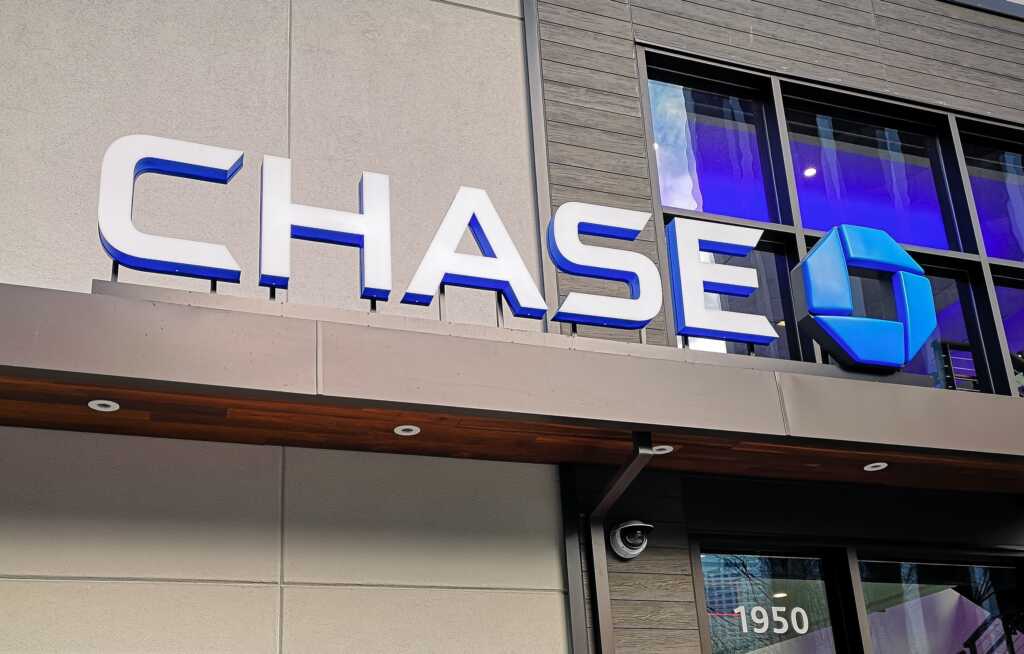A former United States ambassador for religious freedom says Chase Bank abruptly closed an account associated with his nonpartisan, faith-based nonprofit organization with little explanation.
The National Committee for Religious Freedom (NCRF), a 501(c)4 political action nonprofit, opened an account with Chase in April.
Listen to CBN News’ morning podcast, Quick Start 👇
According to Sam Brownback, the group’s chairman and the former U.S. ambassador-at-large for international religious freedom under the Trump administration, the bank decided to “end their relationship” with NCRF and close the account after only three weeks.
“We were surprised at being canceled by Chase,” Brownback wrote in an op-ed published in the Washington Examiner. When our executive director called to see if this was an error, he was informed that ‘a note in the file read that Chase employees were not permitted to provide any further clarifying information to the customer.'”
NCRF Executive Director Justin Murff reached out for more information but was told the decision was made at the “corporate” level and was “final and nonrevocable”.
“Why the cancellation? Why the secrecy and lack of transparency? Why was Chase hiding its reasons and intentions for closing the account of a client that seeks to serve the public good and defend religious freedom for every person in America,” Brownback questioned.
The bank later stated the group had not provided requested documentation in a 60-day timeframe, but Brownback notes the account was only open for 20 days before it was closed.
“To this day, the NCRF does not have a clear reason as to why our account was closed after only three weeks,” he said. “We certainly hadn’t made any transactions in that short amount of time that would have triggered any regulatory red flags.”
Murff was later told by a Chase employee identified as “Chi-Chi” that it might be possible to continue the business relationship if NCRF could provide more information about the nonprofit’s activities.
Specifically, they wanted a donor list, a list of political candidates NCRF intended to support, and a full explanation of the criteria by which they would endorse and support those candidates.
“It was entirely inappropriate to ask for this type of information. Does Chase ask every customer what politicians they support and why before deciding whether or not to accept them as a customer?” Brownback asked in his op-ed.
NCRF was able to open another account at a different bank. The group also launched its “#ChasedAway” campaign, to hear from other faith-based organizations or businesses on whether they have had similar experiences.
“If they can ‘de-bank’ the NCRF, a multi-faith religious nonprofit, what happens when they start ‘de-banking’ pastors and Christian business people?” a question posed by Murff to the Christian Post.
Murff’s suggestion is not too far from reality. In fact, pro-life evangelist Nick Vujicic had his bank account blocked, and PayPal froze the accounts of the UK’s Free Speech Union founder.
On Saturday, Paypal “erroneously” sent out a policy update that said customers could pay $2,500 in damages for sharing misinformation.
According to The Register, the group’s updated acceptable use policy was set to take effect on Nov. 3 and included a clause that would allow them to deduct $2,500 from a person’s account for providing what it deems to be “false, inaccurate or misleading information.”
The organization backpedaled immediately after the policy update triggered a firestorm online.
“PayPal is not fining people for misinformation and this language was never intended to be inserted in our policy. We’re sorry for the confusion this has caused,” a spokesperson for the company said.
By Monday, the California-based company’s shares were down by 6%.
Former Paypal CEO, Elon Musk, and ex-president David Marcus condemned the move.
“A private company now gets to decide to take your money if you say something they disagree with. Insanity,” Marcus tweeted.
“Paypal is censoring speech,” Senator Marsha Blackburn (R-TN) tweeted. “If you don’t listen they will steal your money.
“Go woke, go broke,” tweeted George Papadopoulos.
And Republican-appointed FCC commissioner Brendan Carr called the announcement “Orwellian.”
“This is why it is so vital that state and federal legislatures pass laws that prohibit discrimination by tech companies and protect free speech,” he wrote.
***As the number of voices facing big-tech censorship continues to grow, please sign up for Faithwire’s daily newsletter and download the CBN News app, developed by our parent company, to stay up-to-date with the latest news from a distinctly Christian perspective.***


